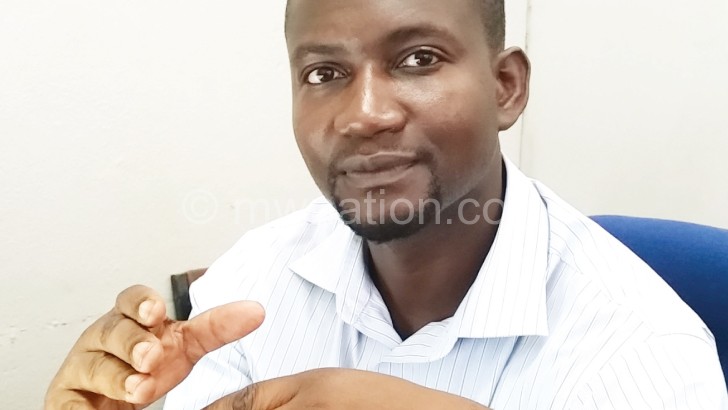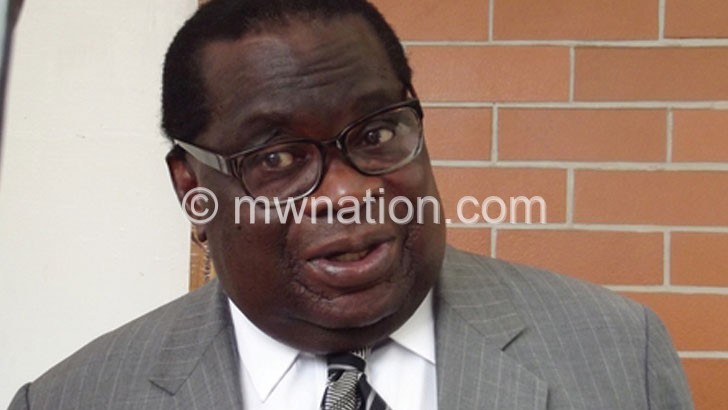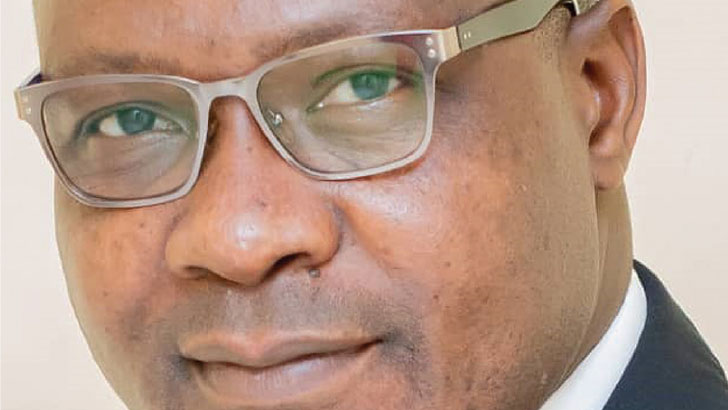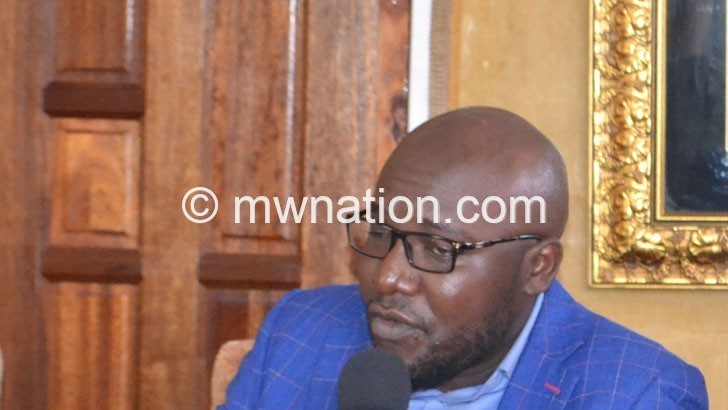‘Parliament meet was impressive’
Parliament rose last Friday after weeks of discussing a wide range of issues. Archibald Kasakura caught up with Chimwemwe Tsitsi, a political communication lecturer at the University of Malawi’s (Unima) The Polytechnic, to give his overall assessment of the meeting.

was transacted
Q
: What is your impression on the overall performance of Parliament during the just-ended meeting of Parliament?
A
: I would say Parliament was generally impressive in terms of how the parliamentarians mainly from the opposition took government to task to adopt and show a more serious approach to tackling the problems the nation is facing. At the same time, we saw some zeal to deal with the load of bills that were on the menu despite several setbacks such as absenteeism of members of Parliament (MPs) and politicking from both sides. In deliberating on the President’s address delivered at the opening of the 46th session of Parliament, there were tense moments as the opposition, especially Malawi Congress Party (MCP) parliamentarians were dissatisfied with content and size of the president’s opening address. Despite both government and opposition at times taking an extreme view on issues, they built consensus on crucial matters resulting in the passing of several bills. The sending back of some bills to relevant committees should also show how serious the parliamentarians were not to let bills pass without rigorous scrutiny.
Q
: What do you think were the critical areas that the MPs touched over the past weeks?
A
:In my view, the critical areas include the need for government to show a little more seriousness towards tackling the challenges the country is facing, especially on the issue of food availability. MPs also deliberated on the challenges the country is facing in the health and energy sectors. The opposition’s stand on the proposed Communications Act also indicated the seriousness that they attach onto efforts to promote good governance in the country. MPs demonstrated their watchdog role by taking government to account for certain activities such as the handling of tractors from India, as well as stopping government from hiking secondary school and university tuition fees amid the economic hardships the nation is facing. Further to that is the routine handling of loan authorisation bills including the one for upgrading aviation navigation equipment at Chileka and Kamuzu International airports. The importance of such infrastructure is so immense in areas of investment, tourism and aviation safety in general.
Q
How was the approach by both sides of the house towards national business?
A
: I think the approach was generally good, albeit there being extremes in terms of the zeal from each side of the aisle to try and outplay each other politically with claims that each side would do better the other. However, that is the beauty of democracy which gives chance for alternative views on issues. At the end of the day it is the voters who will judge which side seemed to care much about their welfare.
Q
: Was the three weeks period that the deliberations took place worth for the volume of business covered?
A
: Generally, I think the time spent was worth the volume of business that was transacted taking into consideration that there is a lot that goes into parliamentary business apart from the plenary sessions. There are a lot of procedures that must be followed with detail to ensure that everything is in place. For example, we noted within the meeting that on several occasions, the opposition had to ask the leader of government business in the house to stick to procedures of serving all MPs necessary documents in advance so that they are well read and properly scrutinised before debating on them, rather than serving them on the same day they are to be presented and debated upon in Parliament. We also have to consider that according to their procedures, they only meet or sit both in the morning and afternoon for two days of the week while the rest are half day sittings, with three hours utmost.
Q
Which do you think were the highest and lowest points of the period, parliamentarians had to tackle national business?
A
:I think the lowest points would include the time when racist attacks were made by an MCP legislator on an independent MP David Bisnowaty. The remarks drew wide condemnation forcing MCP president and Leader of Opposition Lazarus Chakwera to offer an apology on behalf of the party. This was least expected from the MCP as a party one of whose pillars is unity, which one would think include the concept of togetherness on the basis of citizenship regardless of one’s racial origin. Further to that is the lack of clear-cut details in the state of the nation address. As observed in the president’s speech one would think government is not fully aware of the status of issues across the country or was deliberately ignoring it so as to paint a rosy picture of the current administration, which is unfortunate for a country like ours, which is facing a lot of challenges and in need of assertive and visionary leadership that can take Malawi to greater heights. There was also apparently too much politicking focusing on state propaganda on the purchase of vehicles for the three speakers of Parliament and the leader of opposition by the legislative arm. On the positive note, parliament discussed about seven bills passing four while the others were differed.
Q
What do you make of the issue of growing absenteeism by MPs that emerged during the meeting?
A
: Concerning absenteeism, I would say it is inevitable that for some valid reason some few MPs would not be able to attend parliamentary sessions which might include parliamentary business outside the country, which I wouldn’t have problems with. One might be tempted to suggest that such trips should be properly timed to ensure attendance of all MPs. However commonsense tells me that the country’s parliamentary calendar can hardly conform to every country’s parliamentary calendar and other relevant events in the international arena. For this reason, there is always a need for such flexibility as to allow MPs travel for parliamentary business abroad or even during parliamentary meetings. But in general terms, MPs absenting themselves from parliament is a serious breach of contract with the electorate and should form a basis for their evaluation. Perhaps journalists writing about absenteeism should strive to furnish the nation with information on number and identities of MPs who would be absent without valid reasons so as not to jeopardize the political future of those who would be absent for valid reasons.
including the one for upgrading aviation navigation equipment at Chileka and Kamuzu international airports. The importance of such infrastructure is so immense in areas of investment, tourism and aviation safety in general.
Q How was the approach by both sides of the House towards national business?
A
: I think the approach was generally good, albeit there being extremes in terms of the zeal from each side of the aisle to try and outplay each other politically with claims that each side would do better than the other. However, that is the beauty of democracy which gives chance for alternative views on issues. At the end of the day, it is the voters who will judge which side seemed to care much about their welfare.
Q
: Was the three weeks period that the deliberations took place worth for the volume of business covered?
A
: Generally, I think the time spent was worth the volume of business that was transacted taking into consideration that there is a lot that goes into parliamentary business apart from the plenary sessions. There are a lot of procedures that must be followed with detail to ensure that everything is in place. For example, we noted within the meeting that on several occasions, the opposition had to ask the leader of government business in the House to stick to procedures of serving all MPs necessary documents in advance so that they are well read and properly scrutinised before debating on them, rather than serving them on the same day they are to be presented and debated upon in Parliament. We also have to consider that according to their procedures, they only meet or sit both in the morning and afternoon for two days of the week while the rest are half-day sittings, with three hours utmost.
Q
Which do you think were the highest and lowest points of the period parliamentarians had to tackle national business?
A
:I think the lowest points would include the time when racist attacks were made by an MCP legislator on an independent MP David Bisnowaty. The remarks drew wide condemnation forcing MCP president and leader of opposition Lazarus Chakwera to offer an apology on behalf of the party. This was least expected from the MCP as a party one of whose pillars is unity, which one would think include the concept of togetherness on the basis of citizenship regardless of one’s racial origin. Further to that is the lack of clear-cut details in the State of the Nation Address. As observed in the President’s speech, one would think government is not fully aware of the status of issues across the country or was deliberately ignoring it so as to paint a rosy picture of the current administration, which is unfortunate for a country like ours, which is facing a lot of challenges and in need of assertive and visionary leadership that can take Malawi to greater heights. There was also apparently too much politicking focusing on State propaganda on the purchase of vehicles for the three speakers of Parliament and the leader of opposition by the legislative arm. On the positive note, Parliament discussed about seven bills, passing four while the others were differed.n





